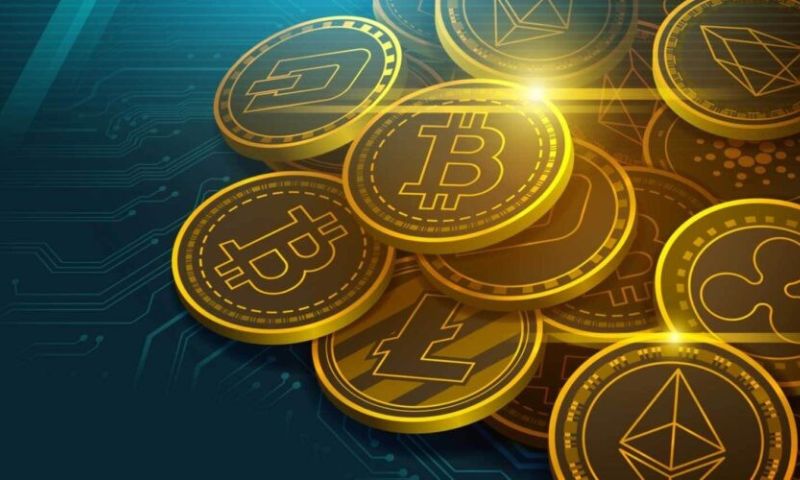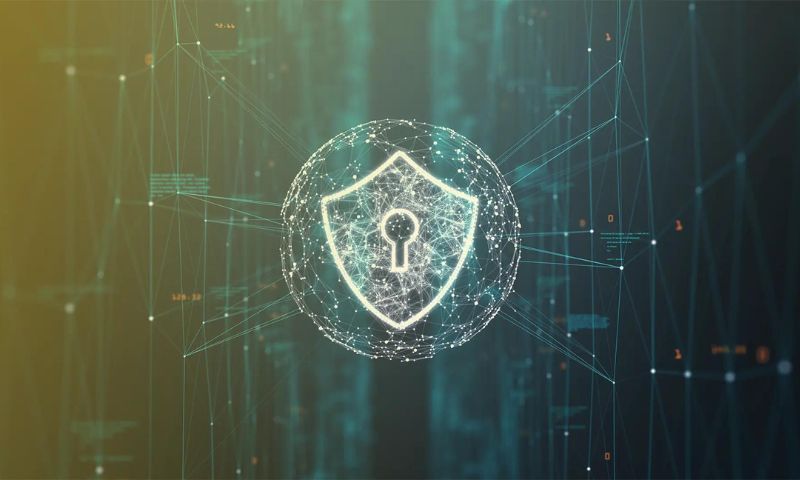Importance of Crypto Security: Just like you’d protect your gold, your digital coins need guarding too. In this ever-growing digital landscape, keeping your cryptocurrency safe isn’t a nice-to-have, it’s a must. With hackers lurking around every corner, you can’t afford to skimp on security. I’ll dive into the best practices and the latest strategies to keep your digital treasure under lock and key. Get ready to learn how to shield your digital assets from the risks out there. Stay sharp, stay secure, and let’s make sure the only one spending your cryptocurrency is you.
Understanding the Landscape of Crypto Security
Best Practices for Crypto Security
Protect your crypto wallet like a treasure chest. Imagine it holds gold. Because it does, in a digital form. Use strong passwords, and change them often. A strong password is like an unbreakable lock. Keep your software up to date, always. Hackers search for old software holes. Don’t give them an easy way in.
Do you know what two-factor authentication is? It’s a second lock for your crypto wallet. With it, stealing your password isn’t enough for thieves. They need access to your phone or email too. Use it.
You also need to back up your wallet. If your device breaks or gets lost, you can still get your crypto back. Think of it like buying insurance for your car. It’s extra safety.
Remember, secure blockchain transactions matter as much as a strong wallet. Check every address twice before sending crypto. Mistakes here can cost you, big time.
Risks of Digital Currency and How to Mitigate Them
What are the risks of digital currency? Many. Phishing attacks can trick you into giving away your info. Be like a detective. Don’t trust links or messages that seem odd. Always check.
Cryptojacking steals your device’s power to mine crypto for someone else. It’s theft, but silent and hidden. Keep your guard up. Use security software that spots these thieves.
SIM swapping is another sneaky move. Hackers convince your phone company they are you. Then, they take control of your phone number. With it, they can break into your accounts. Fight back. Limit the personal info you share online. Hackers use it to fake their identity.
Smart contract vulnerabilities? Yes, they are real too. Smart contracts are like self-running programs on the blockchain. But they can have mistakes in their code. Before you use one, make sure it’s been checked. Think of it like verifying a used car before buying it.
Private key management is key. Never share your private keys. They open your wallet. You wouldn’t give a stranger your house keys, would you? Keep them safe.
Cyber threats lurk everywhere in crypto. Stay informed. Read news from trusted sources. Learn from experts. Knowledge is power. It’s like understanding the weather before a big trip. Be prepared.
Cold storage keeps your digital assets offline, away from hackers. It’s like a safe that’s not even in the same house as the robber. Use it for assets you don’t need daily access to.
Lastly, keep a lid on sharing your investment details online. The fewer who know, the safer you are. Share wisely. Not everyone should know about your digital gold.

Advanced Protective Measures in Cryptocurrency
Leveraging Multi-Factor and Two-Factor Authentication
You must keep your crypto safe. It’s like gold but digital. So, what can you do? Use multi-factor authentication (MFA). It’s simple. Want to access your wallet? You’ll need more than a password. You’ll need a code from your phone or another source. This keeps thieves away from your digital treasure.
MFA works like a shield. Each layer adds strength. A password is good. A code from your phone is better. Both together are top-notch. As an expert, I say this is a must. Multi-factor authentication for wallets means safety first. It’s how you keep your crypto locked tight.
Imagine someone steals your password. They try to log in. But wait! They need that code from your phone. They’re stuck. You get an alert. You know there’s trouble. Just like that, MFA saves your stash. This is one of the best practices for crypto security.
The Role of Encryption in Strengthening Digital Asset Security
Encryption is like a secret language for your data. Only you and the intended receiver can understand it. Every time you deal with crypto, think of encryption as your ally.
When you send or store your digital gold, encryption scrambles it. It turns it into a puzzle no one can solve. Without the right key, that data stays safe and sound. This is cryptography in cryptocurrency. And it’s key to digital asset security.
Think about when you talk with your best friend. You have codes and signs that others don’t get. Encryption is your crypto’s way of talking in code. It locks your secrets tight. It keeps your crypto wallet protection in top form.
Encryption does more than just protect messages, it secures your whole crypto journey. It’s what keeps your money safe on exchanges. It guards your private key management. And it’s what makes sure your crypto stays yours.
Experts like me, we stress this a lot. Use encryption for cryptocurrency security every single time. Your digital gold deserves a vault. Encryption is that vault. Make sure you’re using it. Always.
It’s like putting on armor. It doesn’t matter if you’re just storing or making moves with your crypto. You need to be safe. And with the right protection, like MFA and encryption, you’re set. You’re solid. You’re ready to enjoy your digital gold without worry.

Navigating the Intricacies of Crypto Storage and Transaction Safety
Secure Crypto Storage Solutions
Think of your digital coins as gold. Keeping them safe is like guarding treasure. Secure crypto storage solutions are your best friend in this. They range from hardware wallets to paper wallets. You might ask, “What is cold storage for digital assets?” It’s keeping your crypto offline, away from online risks. It’s like putting your gold in a safe, not in your pocket.
Hardware wallets are the go-to for many. They are physical devices that store your crypto keys. Use them, and even if your computer is hacked, your coins are safe. Think of hardware wallets as the safest home for your digital gold. They lock away your assets, waiting for you when needed.
Software wallets on your phone or computer are like regular wallets. They’re handy, but risky if misplaced or if someone sneaky gets access. Always back up your files and use strong passwords.
Safeguarding Blockchain Transactions and Ledger Integrity
Blockchain is all about trust. But even the strongest chain has weak links. Smart contracts, for example. You might wonder, “How can smart contract vulnerabilities impact me?” If they’re flawed, someone can steal your crypto. It’s like a bank with poor security. You want your money in a safe bank, right?
Ledger integrity ensures all transactions are honest and unchanged. Secure blockchain transactions depend on this integrity. To make sure it stays intact, networks check transactions. Many eyes on the ledger mean less chance for funny business. It’s like having a security camera over your safe.
Encryption for cryptocurrency security is like a secret code for your gold. Only you have the key to decode it. This keeps prying eyes out of your business. Always double-check website addresses to avoid phishing attacks. And keep an eye out for sneaky scams.
Digital asset security isn’t just good practice—it’s essential. The risks of digital currency are real. Thieves and hackers are like digital pirates looking for loot. Multi-factor authentication for wallets adds extra locks to your treasure chest. Using two different keys means even if one is stolen, your gold stays safe.
Blockchain hacking prevention includes staying updated on best practices for crypto security. Knowing your stuff speeds you towards a safe crypto journey. So, learn about cryptography in cryptocurrency. It’s the wizard behind the curtain, working magic to protect your assets.
Remember your keys. Private key management is crucial because it’s the only way into your wallet. Lose it, and your treasure might be gone for good. Think of your private key as the secret map to your gold. Guard it with your life.
Putting these pieces together lets you sail the crypto seas with confidence. So buckle up and set course for a safe voyage in the world of digital gold.

Regulatory Compliance and Safeguards Against Deceptive Practices
Understanding KYC and AML in Crypto Transactions
Knowing your customer (KYC) and anti-money laundering (AML) are key. They keep crypto safe. Businesses use KYC to know who’s buying. They check IDs and track info. AML spots dirty money moves. It stops crime funds from mixing in crypto.
This matters a lot for your crypto wallet protection. Secure blockchain transactions rely on it. Cryptocurrency safety measures need these checks. Otherwise, bad actors slip through. Digital asset security is everyone’s job. KYC and AML help us do it right.
Let’s get into what this means for you. Say you’re setting up a crypto exchange account. They’ll ask for your ID or a bill to prove your spot. It’s not nosy – it’s safe. Without KYC, anyone could use your cash. You could end up linked to something nasty without it.
Also, remember, staying safe is not just a one-time thing. Keep your info fresh with them. And always make sure you know who you’re dealing with. Best practices for crypto security say: if in doubt, check them out. It’s a simple step you can take for massive peace of mind.
Identifying and Avoiding Crypto Scams and Frauds
Scams and frauds are full of tricks. Knowing them can save you a world of hurt. Phishing attacks in crypto happen when someone tricks you into giving your key or password. They might send a fake email or a message that looks real. Don’t click weird links, and don’t share your secrets.
Cold storage for digital assets is smart. It’s like a safe no thief can touch. Use hardware wallets. They’re even safer than your phone or computer. Cyber thieves can’t swipe your coins if they can’t get online.
Watch for too-good-to-be-true deals. These are often bait for scams. Real investments take time. Get-rich-quick plans? They can flatten your wallet faster than you can blink.
You might wonder, “How does two-factor authentication keep me safe?” It adds an extra step. A code goes to your phone or app when you try to get in. It’s one more wall between crooks and your cash. Smart contract vulnerabilities can be kept in check with regular check-ups and by staying on certified platforms.
And if someone tries to scare you into acting fast? Think twice. Real deals don’t rush. Take a breath, and do your research. Securing mobile crypto applications means checking their rep. Got a neon sign saying “scam” in your head? Listen to it.
In essence, keep those digital treasures locked tight. Regulatory compliance like KYC and AML keeps the whole industry honest. And when you take steps to care for your cryptos, using all the tools out there to stop scams? You’re on track to a worry-free journey in the world of digital gold.
In this post, we dove into crypto security, from basic best practices to advanced protection. We looked at how to keep your digital money safe and how to avoid risks that come with it. Remember, using strong authentication like multi-factor helps a lot. Encryption is your friend when it comes to keeping your assets secure.
We also tackled the right ways to store and handle your crypto. Safe storage is key, and keeping transactions and ledgers in check is a must. Lastly, we can’t ignore rules and safeguards. Knowing about KYC and AML helps you stay on the right side of the law and dodge scams.
Take these tips seriously. Stay safe out there, and keep your crypto secure!
Q&A :
Why is crypto security so critical in digital currency transactions?
Crypto security is essential because it protects against the theft of assets, ensures the integrity of transactions, and instills trust in the digital currency ecosystem. Cryptocurrencies are digital and decentralized in nature, making them attractive targets for cybercriminals. Effective security measures are vital to safeguard investments and maintain user confidence in these rapidly evolving markets.
How can you enhance the security of your cryptocurrency investments?
Individuals can improve their crypto security by using strong, unique passwords, enabling two-factor authentication (2FA), keeping their private keys offline (cold storage), regularly updating their software, and being cautious of phishing attempts. Moreover, using reputable wallets and crypto exchanges with robust security features is also a top priority.
What are the most common threats to cryptocurrency security?
The main threats to cryptocurrency security include hacking attacks on exchanges or wallets, phishing scams, malware, loss or theft of private keys, and fraudulent ICOs (Initial Coin Offerings). Users should stay informed about the latest security threats and best practices to mitigate these risks.
Does using hardware wallets significantly increase cryptocurrency security?
Yes, hardware wallets can significantly enhance crypto security by storing private keys in a physical device that is not connected to the internet, reducing the risk of online hacking attempts. These wallets are considered one of the safest options for holding cryptocurrencies, especially for long-term storage or significant amounts of assets.
What role do blockchain technologies play in ensuring crypto security?
Blockchain technologies play a pivotal role in crypto security through their inherent characteristics, such as decentralization, transparency, and immutable record-keeping. By distributing the ledger across a network and requiring consensus for transaction validation, blockchains reduce the risk of fraud and unauthorized access, contributing to the overall security of the cryptocurrency space.
